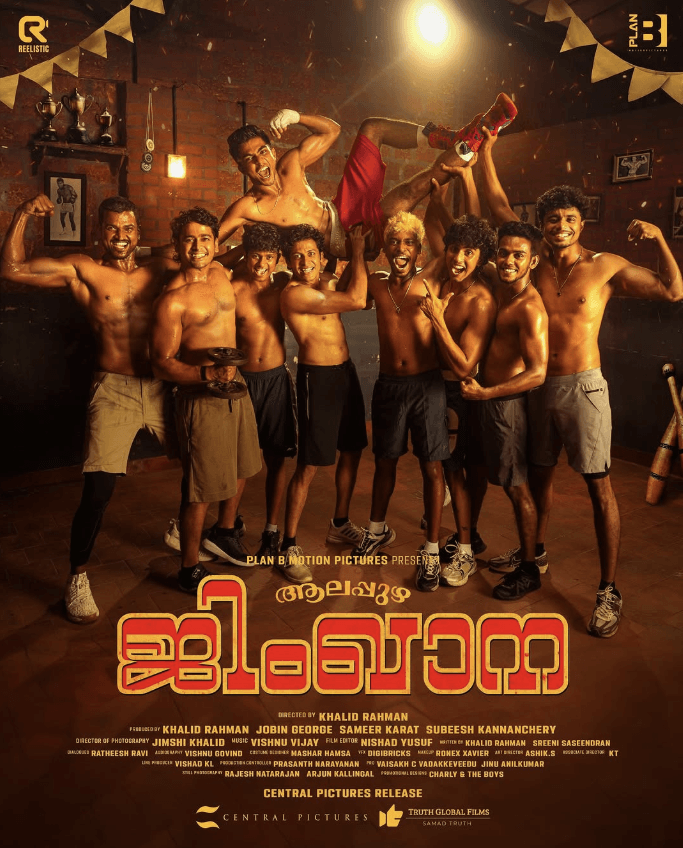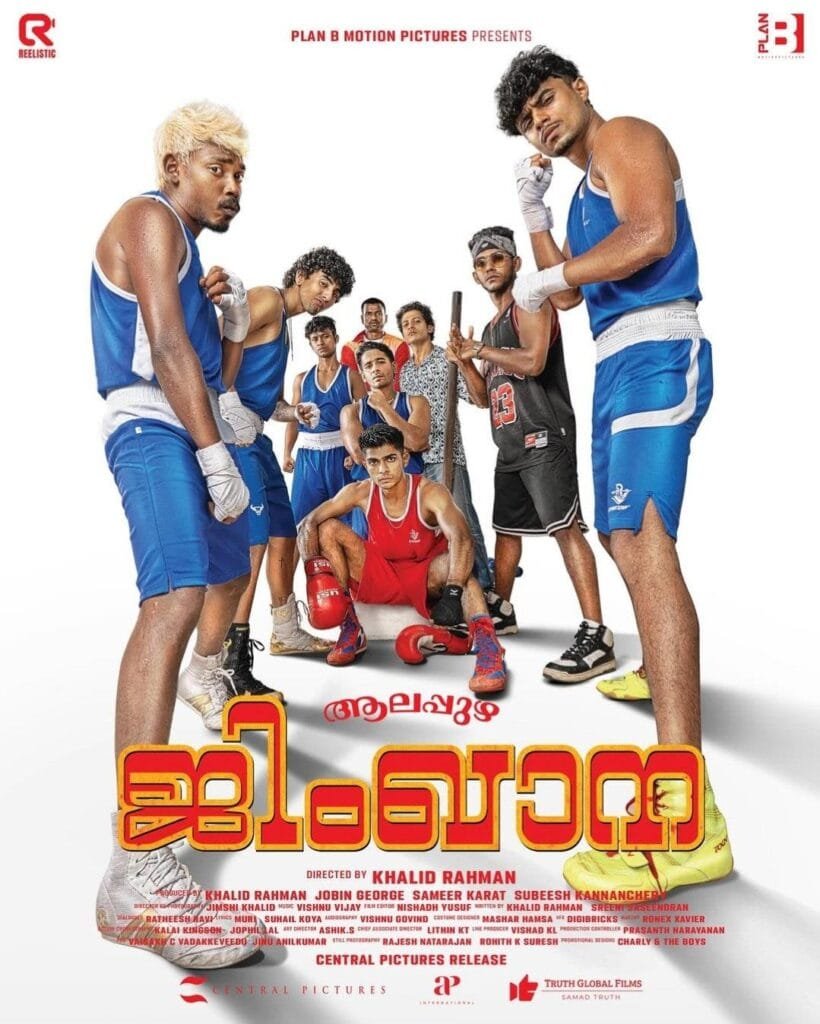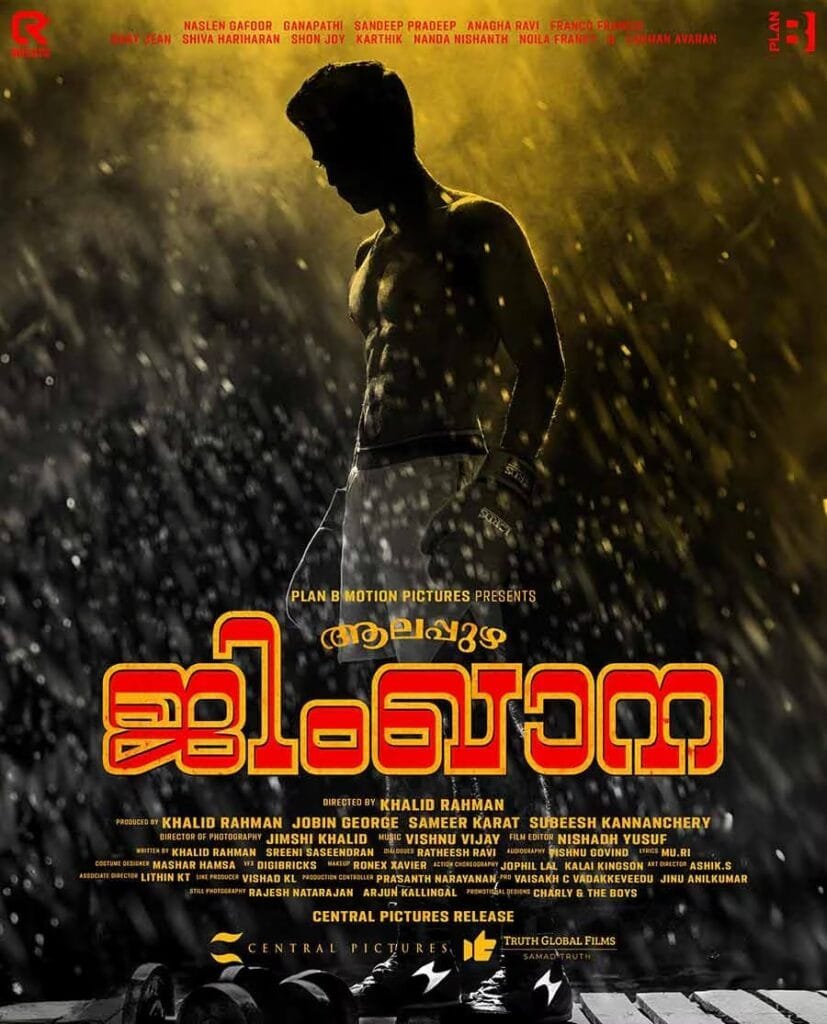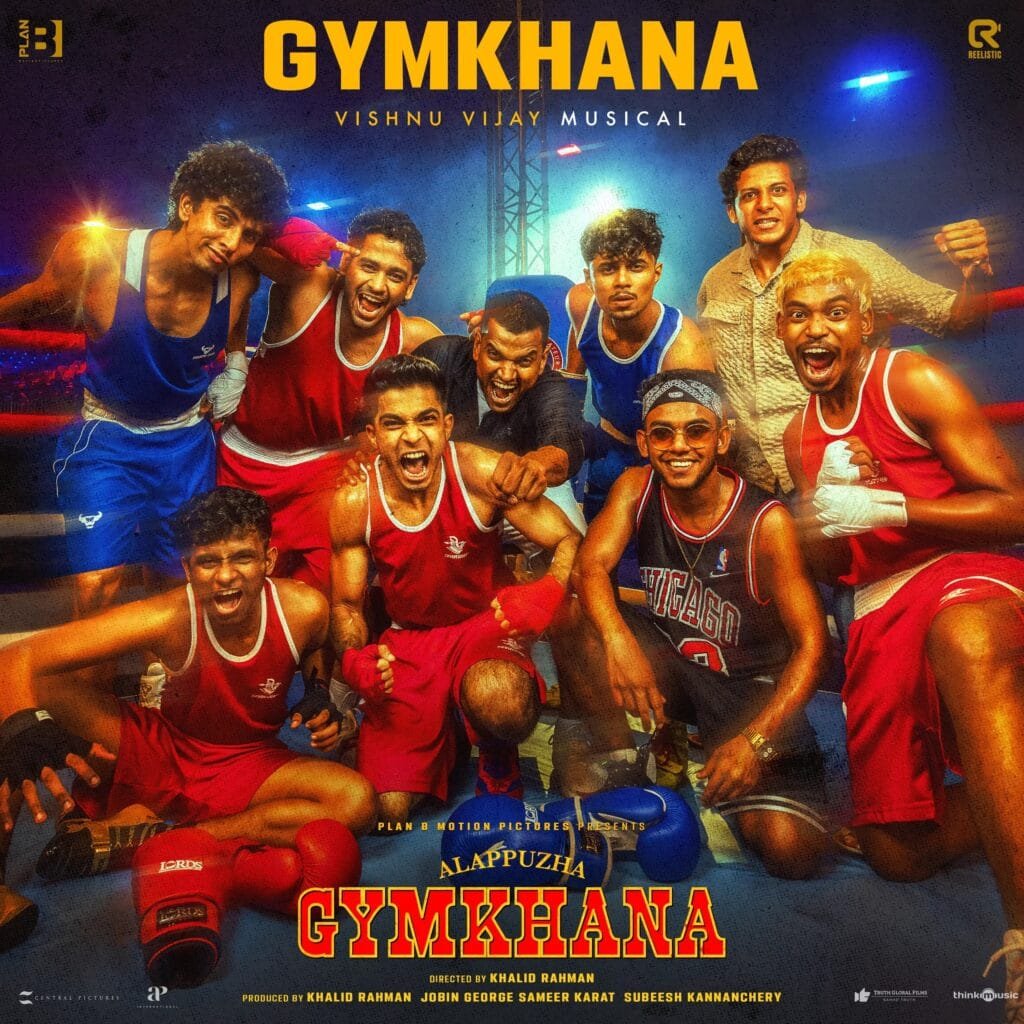“Alappuzha Gymkhana,” directed by Khalid Rahman, redefines the sports genre, shifting its focus from grand victories to the charming unpredictability of youth, friendship, and personal discovery. Instead of following a conventional sports drama arc, the film embraces the beauty of life’s uncertainties and the importance of perseverance, wrapped in a lively and heartfelt narrative.

Acting
The film thrives on its natural and engaging performances, particularly from Naslen as Jojo Johnson, who brings his characteristic energy and effortless humor to the role, embodying youthful uncertainty with charm. Ganapathi, portraying Deepak, delivers a restrained performance, though his emotional arc could have been explored further. Supporting actors, including Sandeep Pradeep, Franco Francis, and Shiva Hariharan, contribute to the film’s warmth and authenticity, forming a believable and engaging group dynamic. Anagha Ravi makes a strong impression as a determined female boxer, while Lukman Avaran, playing the coach, exudes quiet strength, though his character remains somewhat underutilized as the narrative unfolds.

Direction
Rahman steps away from conventional sports storytelling, opting for a grounded, observational style akin to his earlier work, “Thallumaala.” He brings a fresh energy to everyday interactions—whether it’s awkward training, casual conversations, or endearing missteps—creating an inviting and immersive atmosphere. While the first half leisurely introduces the characters and their world, the shift in tone in the latter half, as the story leans toward individual struggles and matches, feels uneven at times. Nevertheless, Rahman crafts a “hangout movie” experience reminiscent of Richard Linklater’s style, emphasizing character dynamics over traditional plot structures.

Technical Aspects
The film’s vibrant execution stands out, with Vishnu Vijay’s music elevating its mood and tone. The boxing sequences are impressively choreographed, visually dynamic, and enhanced by Jimshi Khalid’s cinematography, which creatively captures the energy and intensity of the sport. Clever camera work immerses the audience in the ring, offering a fresh perspective on the action. While the absence of major conflicts or antagonists enhances its realistic feel, it slightly reduces the emotional weight of the latter half.

Rather than chasing dramatic highs, “Alappuzha Gymkhana” delivers a warm, relatable journey about friendship, self-exploration, and finding meaning in unexpected places. Though it may not make a thunderous impact, its genuine character interactions, strong performances, and inventive cinematography ensure it leaves a lasting impression, making viewers want to spend more time with its endearing characters.
